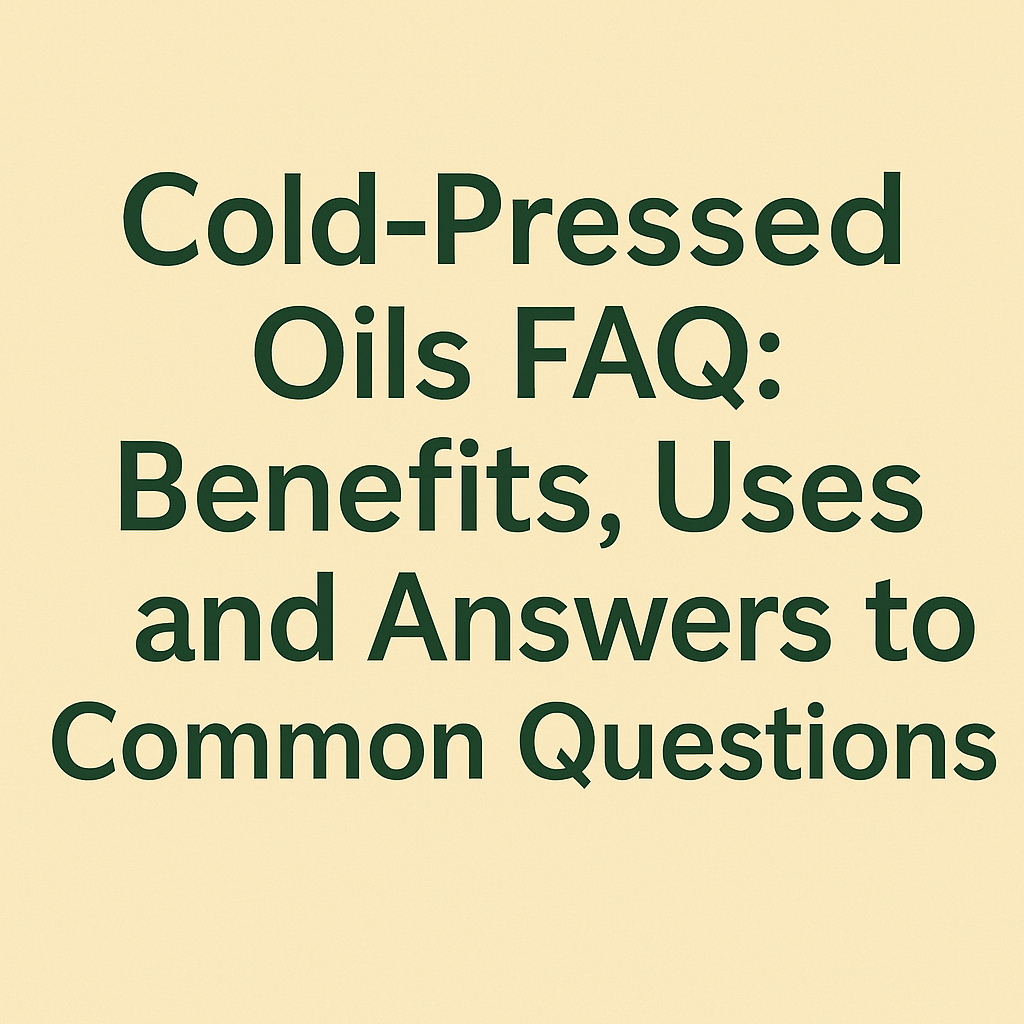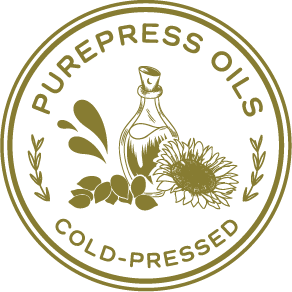
Cold-Pressed Oils FAQ: Benefits, Uses, and Answers to Common Questions
Olesya OdasShare
Cold-pressed oils are becoming more and more popular — and for good reason. They’re minimally processed, naturally flavorful, and versatile in both cooking and skincare. But many people still have questions about what they are, how to use them, and why they’re different from refined oils.
Here’s your complete FAQ guide to cold-pressed oils.
1. What is cold-pressed oil?
Cold-pressed oil is made by mechanically pressing seeds or nuts at low temperatures, without heat or chemicals. This keeps the oil’s natural flavor, aroma, and plant compounds intact compared to refined oils.
2. How is cold-pressed oil different from refined oil?
Refined oils are extracted with heat or solvents and then heavily processed, which changes the taste and can strip natural compounds. Cold-pressed oils, on the other hand, are made gently, preserving authentic flavor and color.
3. What are the benefits of using cold-pressed oils?
Cold-pressed oils are valued for their purity, taste, and versatility. They can enhance recipes, be used in natural skincare, and are a favorite for people who prefer clean, minimally processed foods.
4. Which cold-pressed oil is best for cooking?
It depends on your dish:
-
Pumpkin seed oil – nutty, bold flavor for salads, dips, and drizzling.
-
Sunflower oil – mild, light, and great for everyday cooking.
-
Almond oil – slightly sweet, perfect for baking or sautéing.
-
Sesame oil – earthy and robust, delicious in stir-fries and dressings.
-
Hemp oil – grassy, fresh taste, best for finishing dishes (not high heat).
5. Can I use cold-pressed oils for skincare?
Yes. Many people use almond, sunflower, and pumpkin seed oils to moisturize and protect skin or hair in a natural way.
6. Are cold-pressed oils good for salad dressings?
Absolutely. They shine when used raw. A drizzle of pumpkin, sesame, or hemp oil instantly elevates a simple salad into a gourmet dish.
7. How should I store cold-pressed oils?
Keep bottles in a cool, dark place with the cap sealed tightly. Pumpkin seed and hemp oils are best kept in the fridge after opening to stay fresh.
8. Do cold-pressed oils have a shorter shelf life?
Yes. Because they aren’t processed with preservatives, most last about 6–12 months. Always check the best-before date and rely on taste and smell to ensure freshness.
9. Are cold-pressed oils suitable for high-heat cooking?
Some are, some aren’t. Sunflower oil can handle medium-high heat, but pumpkin seed, sesame, and hemp oils are best for low heat or finishing recipes.
10. Where can I buy high-quality cold-pressed oils?
Choose small-batch producers who press fresh seeds and keep processing minimal. At Purepress Oils, we make cold-pressed pumpkin, almond, sunflower, sesame, and hemp oils in small batches on Vancouver Island, shipped fresh across Canada and the USA.
Final Thoughts
Cold-pressed oils are more than just cooking ingredients — they’re a way to bring pure, authentic flavors and natural versatility into your kitchen and daily routine. Whether you’re drizzling, dressing, baking, or moisturizing, there’s a cold-pressed oil to suit your needs.
